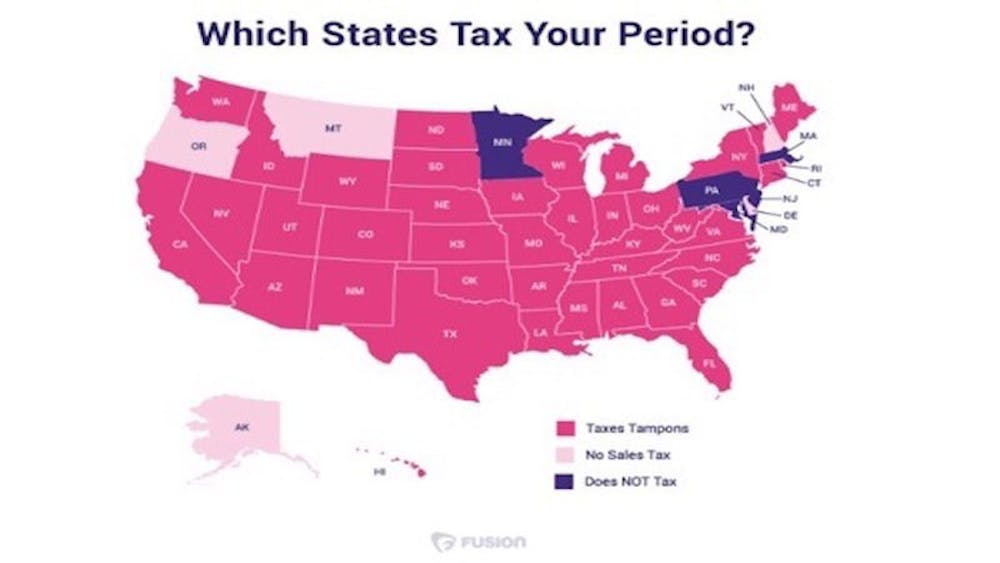COLUMN: Is The 'Pink Tax' Costing You An Extra $1,351 Every Year?
Women spend approximately 2,535 days (nearly seven years) of their life on their periods.
Women don't choose to have their periods. Nevertheless, they pay a significant amount of money because of them.
The "pink tax", so named due to the color commonly used to market items toward women, refers to the price on female-specific products. These products typically cost an average of 7 percent more than the equivalent merchandise for men. It can cost you an extra $1,351 every year.
There are several issues with this, one being that women are already paid less as it is, due to the gender pay gap. Another being that, tampons and other feminine hygiene products are taxed as a "luxury item."
That means, we as women, not only have to pay for almost seven years of period supplies, but that all of those items are taxed as if they aren't necessary health care products.
A common and irritating question in the argument against the "pink tax" is: Why are pads and tampons taxed when Viagra is not?
Viagra does not treat a necessary biological function.
As a country, we have made some progress. There are nine states that currently exempt menstrual hygiene products from taxation: Connecticut, Florida, Illinois, Maryland, Massachusetts, Minnesota, New Jersey, New York, and Pennsylvania.
Five other states have no sales tax: Alaska, Delaware, Montana, New Hampshire, and Oregon. There are currently seven states working toward legislation that will hopefully end tax on period products. This leaves twenty-nine states that continue to tax female consumers on necessary health care products.
Let's not forget that most female-targeted products cost more overall. It's fair to say that most women probably shop more than men, but it is not fair that companies purposely raise their prices when they are gearing a product toward women simply because we are more likely to need to or want to buy it. All of these facts demonstrate that companies producing these products operate with a gender-based pricing system.
So why should you care? If the fact that you're being charged more because of your gender or natural biological bodily functions isn't enough, the fight for equality in the consumer realm and society as a whole should motivate you. The "pink tax" is a blatantly gender-biased tax that serves as a form of institutionalized misogyny.
Nowadays, it's common to be told that as women we have it pretty good and we should back down. However, our fight is more important than ever. Our ancestors fought harder than we can imagine for basic rights, and while we do have it pretty good, considering that history, we cannot give up. We are not yet on equal ground with the men of the world.
This tax makes it more difficult to for some to access feminine hygiene products here in America but there are also places in this world where women have no access to these products at all.
Our fight is paving the way for our future here and the future of those around the world.
That's why we must continue to support the fight against the "pink tax" as well as supporting companies that fight with us. Companies like Cora pay the tampon tax for its Cora customers in California.
Even former President Barrack Obama once spoke out against the inconceivable tax on menstrual products in an interview with Ingrid Nilsen.
"I have no idea why states would tax these as luxury items," he said. "I suspect it's because men were making the laws when those taxes were passed."
Further proving that these taxes are part of outdated, gender-biased state legislature that needs to be reformed. Pushing for these changes will hopefully lead to better, gender-neutral results.
It's ridiculous that something as inconsequential as our gender results in us being charged more money, for products we absolutely need, with the money we earn less of than our male counterparts.
So, speak out against the "pink tax" and help support movements such as #axthepinktax, Cora, and Change.org's End the #TamponTax.







